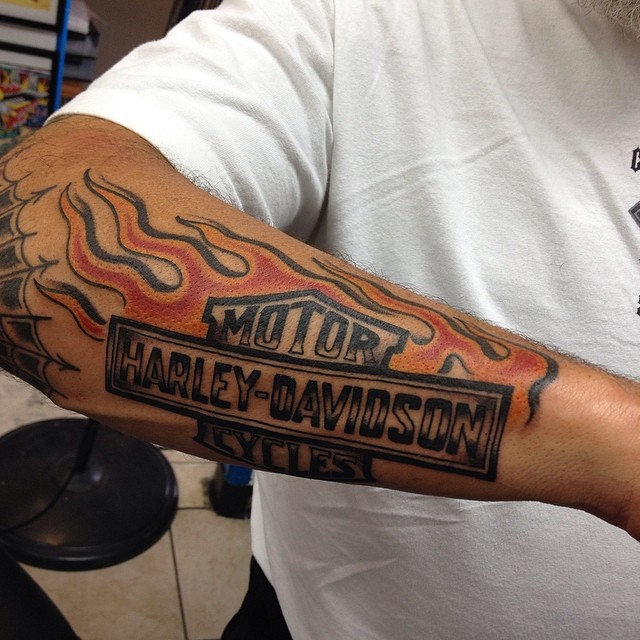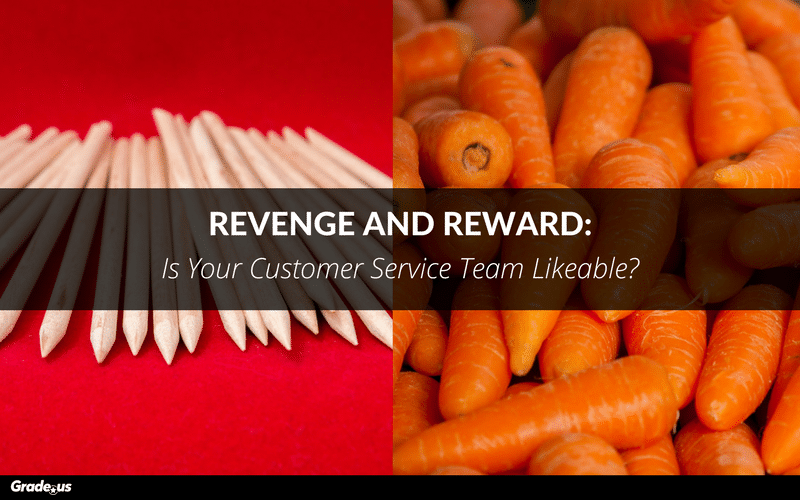What do customers think about you?
When they think of your customer service what comes to mind? If you’re like most businesses you’re not entirely sure. Some feel the question doesn’t matter.
Who cares?
As long as customers are spending and satisfied what does that matter? That question is important for two reasons.
Revenge and reward.
Are your customers out for revenge?
Research from Allison Johnson et al. found that a bad experience with a favorite brand is just as likely to cause revenge seeking behavior as an emotional breakup.
Yikes.
It’s frightening and a little bizarre. Why would customers feel the need to seek revenge against you for a bad experience? That seems like a disproportionate response to a seemingly minor problem, doesn’t it?
Believe it or not, revenge is a logical response…
According to the study, loyal customers identify so strongly with brands that they become part of their identity and self-concept. When your customers have a bad experience they’re far more likely to feel betrayed by your brands.
That perceived sense of betrayal is the motivating factor behind revenge seeking behavior.
That sounds ridiculous.
Because customers don’t care about brands! They’re focused on what you can do for them, right?
Actually, No.
Loyal customers care about brands
As we’ve seen, brands become part of a customer’s identity, creating an intense connection that comes with its own expectations and requirements.
Here’s why that’s a problem.
If you’re like most companies, you work incredibly hard to win a customer. You work even harder to keep that customer. You focus your attention on maintaining customer loyalty.
Which is where things go wrong.
Almost every company wants a loyal customer. The kind of customer who’s willing to spend a huge amount of money on your products and services.
Customers like these:
Or this:

Or this:
Basically, the kind of customer we’d love to have.
And there lies the problem.
Loyalty is a lot like marriage
Customer loyalty comes with responsibilities and expectations. Most businesses feel they already know what these responsibilities and expectations are – low prices, great service, great product, etc.
Those are the basics.
Your customers want more, much more.
Okay, okay.
What do customers want from you (besides the usual requirements)?
· Fidelity. Customers don’t want to be betrayed. They want to be included and part of the big decisions. Netflix tried to spin their DVD business off into a separate company. Then, when customers weren’t happy, they used customer service to push their agenda. They lost 800,000 members as a result.
· Ownership. With loyal customers, your business becomes “our business.” In 1983, Coca-Cola decided to change their secret formula without speaking to their customers. Naturally this enraged Coke loyalists. Coca-Cola received 1500 calls per day and more than 400,000 angry calls and letters. Psychiatrists Coke hired to listen in on calls told executives customers sounded as if they were grieving the death of a loved one.
· Stability. Customers look to you for very specific things. They want to feel confident, knowing you continue to provide them with the same level of care, guidance and protection. Ecommerce retailer Newegg had a huge niche following with techies and power users. That is until they sold the business to a Chinese company. The new owners made significant and drastic changes, causing customers to abandon the company in droves.
· Consistency. Customers want you to stay true to who you are. WhiteWave foods, makers of Silk organic soy milk stated they were strictly organic, non GMO. Then in 2002 when WhiteWave sold Silk to Dean Foods their products became just “natural.” Stating they felt betrayed, customers called for a boycott.
Which is where your customer service team comes in.
Is your customer service team unlikeable?
When it comes to customer service, your teams will encounter three types of problems.
1. Individual. The vast majority of your day-to-day customer service problems will be a one-on-one affair. These individual problems cover the full gamut of pre–sales, order, fulfillment, satisfaction and general problems.
2. Group. A particular segment of your customer population is encountering a problem. This could be due to outages, quality or management issues – anything that affects a segment of your customer population.
3. Systemic. These are major problems that affect a significant portion of your customer population. These problems are typically major threats and, are likely to affect the survivability of your business.
These types of problems come with downsides that affect your customer service team’s likeability.
· Individual problems vary considerably so they’re far more difficult to deal with. New customer service reps will consistently run into problems they’re simply unable to deal with. Experienced reps may struggle to keep up with the leadership and training demands new reps bring with them.
· Group problems create pockets of disloyalty. As customers struggle with feelings of anger and betrayal a few drift towards revenge, doing what they can to get back at the company for their perceived slight whether that’s a negative review, social media post or recording of the interaction.
· Systemic problems force your customer service team into a corner. If you’re dealing with a systemic problem, customers aren’t happy. Fail to provide your customer service team with a solution and you force them to take a crushing barrage of abuse and vitriol from customers. The long term effect is frustration, demoralization, and eventually retaliation as customer service reps buckle under the pressure and the strain of mass cancellations and pressure from customers and management.
So, how do you assess your team’s responsiveness? What should you be looking for?
Identify triggers that decrease likeability
Research shows, negative emotion – fear, stress and anxiety – kills performance. Your customer service team is expected to handle large amounts of negative emotion on a consistent basis.
Negative emotion, as a trigger, decreases the likeability of your customer service team. Which is exactly what you’re looking for.
How do you use this to assess your team’s likeability? You ask the right questions.
· Have you hired the right people for the job?
· Are support reps required to push specific products, services or agendas?
· Are customer service reps trained with an adequate level of win/win negotiation strategies?
· Do your customer support reps have the time to take care of customers or, are they timed?
· Is your customer service team focused on the gentle art of Humble Inquiry?
· Does your customer service team receive regular feedback from customers, co-workers and management?
· Is it okay for customer support reps to ask for the things they need?
While there’s no universal standard or system in place for customer service teams, the key take away here is this: Take care of your team’s mental and emotional health. Do what you can to make their job easier and automatically increase their likeability.
Assessing your support team is deceptively simple
It’s making the changes based on your findings that’s difficult. Want to maximize likeability? Start by (a.) Choosing the right team (b.) Creating a supportive environment and (c.) Giving your customer service teams freedom.
Why is freedom important?
Your customers demand it. They want your customer service team to have the freedom, authority and control needed to solve their problems.
No reasonable employee intentionally chooses to fail, yet that’s the exact outcome you’ll receive if your customer service team doesn’t have the support they need.
Likeability is the antidote to revenge
Customer loyalty goes both ways. What do customers think about your customer service? You’re not like most businesses, you know how to find the answer.
Because you care.
Loyalty comes with responsibilities and expectations. Customers identify strongly with brands they love. Become a beloved brand and you become part of their identity and self-concept. Betray customers and they’re far more likely to feel betrayed.
Revenge or reward, it’s up to you. Improve the likability of your customer service team and you cement your customer’s loyalty, no revenge necessary.
About the Author
Andrew McDermott
Andrew McDermott is the co-founder of HooktoWin. He shows entrepreneurs how to attract and win new customers.









